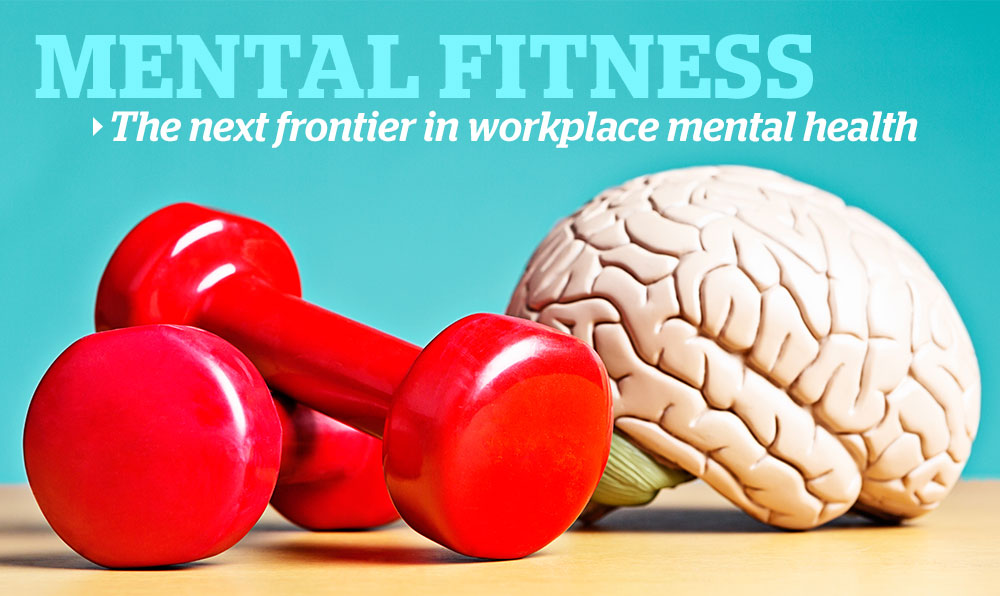

Columns/Blogs
Features
Mental Health
Mental fitness: Why training your mental state matters
By Bill Howatt

EDITOR’S NOTE: ‘Mental Fitness: The next frontier in workplace mental health’ is a weekly series, in partnership with Dr. Bill Howatt of Howatt HR Consulting in Ottawa. This series takes a deeper look at mental fitness — an approach to prevent mental harm and promote mental health.
“Your current mental state influences how you respond to a challenging situation.” – Dr. Bill Howatt
How effectively you respond to the different kinds of human interactions you are confronted with every day shapes the quality of your personal and professional social relationships with others as well as with yourself.
A guiding tenet for positive emotional well-being is the capacity to regulate emotions. Your mental state is one gauge you can use to predict how you will respond to human interactions.
The more positive your mental state, the more open and collaborative your interactions.
Understanding the link between mental state and outcomes
The following chart provides an overview of how your current mental state influences how you interpret a situation and its outcome.
Think of your mental state as a filter to process what is happening as you experience the world. This filter can be negative, neutral, or positive.
Your mental state matters because it influences how you ultimately behave.
| Situation that facilitates the human interaction (i.e., manager calls with a concern) | Can be described as an occurrence (i.e., communication, thought) that is directed towards you from a third party or from within. In the gap between this stimulus and your response are your free will and choice. |
| Mental state | How you respond to a situation is influenced by your mental state. Negative thoughts influence a negative outlook and generate a negative mental state. Positive thoughts do the opposite. |
| Perception | How you perceive a situation is filtered through your mental state. Typically, the more positive your mental state, the less likely you will generate fear-based, reactive, unpleasant emotions. |
| Decision | How you perceive a situation influences your decision-making. If you perceive a situation as negative, you are likely to be defensive, less open, and seek a judgmental decision. |
| Behaviour | Your decisions determine what you will do. |
| Human interaction outcome | The behaviours you choose will predict how all parties, including you, will evaluate the outcome as being positive or negative. |
Psychologically Safe Workplace Awards provide employers tools, data on mental health
Six factors that influence a positive mental state
Your mental state sets your cognitive readiness and the lens through which you view and interact with the world. When your mental state is negative, you are likely to be sensitive to criticism, feedback, challenges, differences of opinion, and collaboration.
You can train your brain to have a more positive mental state by paying attention to the following factors:
Emotion charge: how effectively you can regulate unpleasant emotions and initiate positive emotions. If unsure how to regulate unpleasant emotions, consider developing your emotional regulation.
Support charge: the level of support you perceive you have as well as the level of support you provide people you care about. If unsure where to start, seek out different kinds of supports and each day provide someone you care about a positive affirmation to create positive emotions.
Physiology charge: the degree you take positive actions to enhance your body’s energy levels and overall health. The quality of food and the degree you are properly hydrated and move impact your energy level. Focus on what you do to create more energy to build more positive emotions.
Language charge: the types of conversation you have with yourself and others regarding positive and negative language. The words you interact with most, both internally and externally, can influence your mind to be more positive or negative. If unsure where to start, do all you can to only be around people who most of the time are positive and make a commitment to challenge and dismiss any negative self-talk that is hurtful to you.
Creating a positive mindset
The next step is daily action.
Use the following chart to take a few moments each day to self-evaluate how you leveraged each factor charge and note what factor you could do a bit better with the next day. Your mental state will be influenced by what you do.
| Factors that can charge my mental state for positive or negative | Score each factor using the following four-point scale:
1. Did not leverage this factor |
One thing I can do tomorrow with more intention to improve this factor.
|
| 1. Emotion charge | ||
| 2. Support charge | ||
| 3. Physiology charge | ||
| 4. Language charge |
 Dr. Bill Howatt is the Ottawa-based president of Howatt HR Consulting.
Dr. Bill Howatt is the Ottawa-based president of Howatt HR Consulting.
If there is a particular microskill or topic you would like to see Dr. Howatt write on that supports employees’ mental health in the workplace, please send your request to Talent Canada editor Marcel Vander Wier.
Print this page